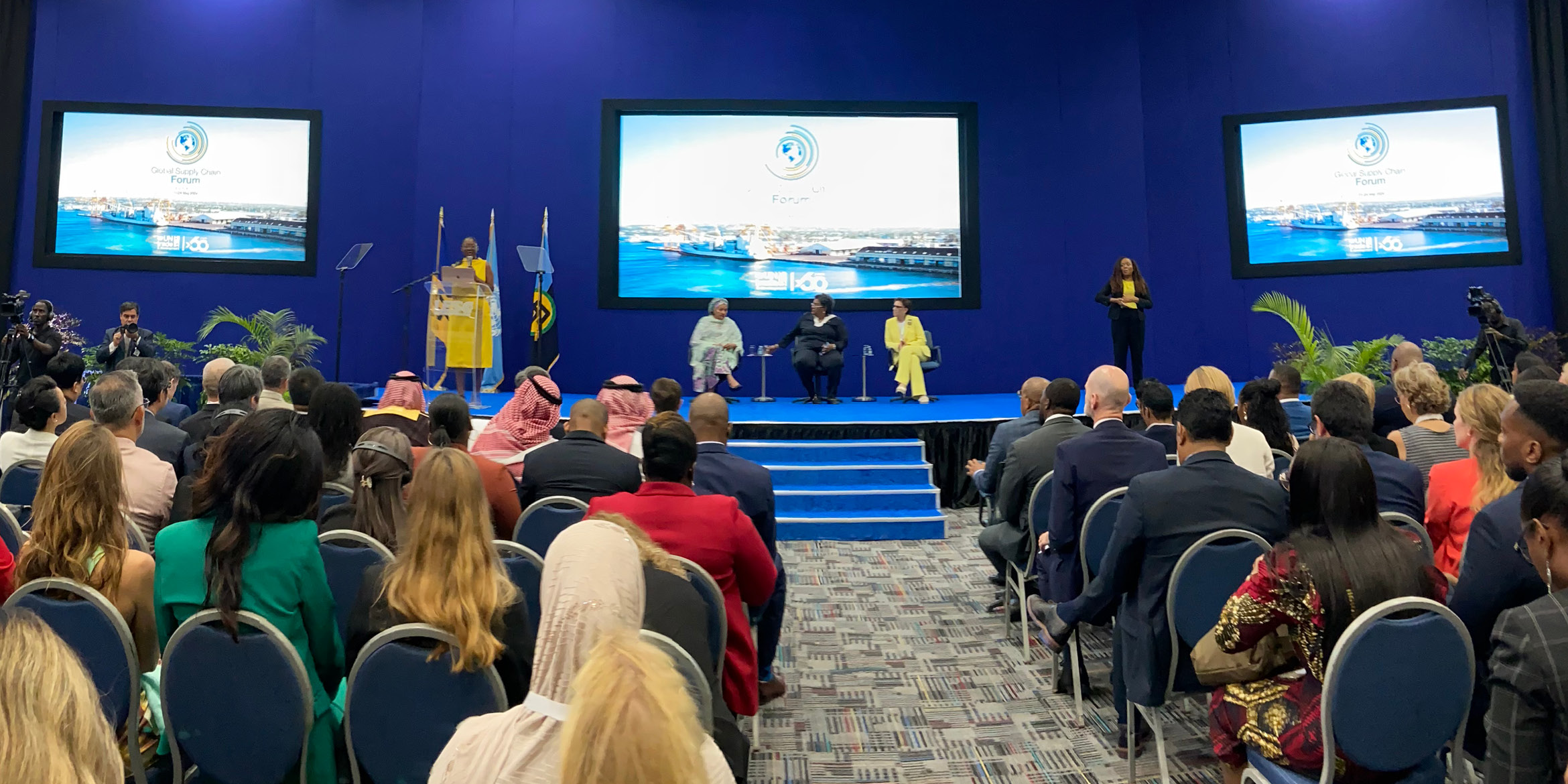PROJECT
Decarbonizing Health Supply Chains through Scope 3.4 Emissions Reduction
Delivering a Triple Win: Cutting Emissions, Saving Costs, and Advancing Global Health (SDG 3)

LOCATION
Latin America
SECTOR
United Nations / International Organization
SOLUTIONS
Sustainable Supply Chains, Healthcare Supply Chains, Scope 3.4 Emissions, GHG Accounting, Supplier Engagement
Summary:
SourcingHaus supported the organization in developing and operationalizing a comprehensive strategy to reduce Scope 3.4 emissions—those associated with upstream transportation and distribution. Through the creation of a GHG emissions baseline, supplier engagement, and a multi-year reduction roadmap, the project delivered a clear triple win: lowering carbon footprint, identifying cost-saving logistics solutions, and improving public health outcomes by addressing climate-related health risks.
The Challenge:
Healthcare systems are responsible for an estimated 4–5% of global GHG emissions, with 70–75% of these emissions originating from supply chain activities. Global freight transport alone contributes up to 11% of global emissions and is projected to become the largest emitting sector by 2050. The organization needed a credible, standardized method to measure and reduce emissions in a complex, multinational healthcare supply chain.
What We Did:
Our work included:
- Emissions Baseline Creation: Using the GHG Protocol, GLEC Framework , and ISO 14083 , we established an emissions baseline for transportation.
- Structured Methodology Development: We applied a distance-based methodology to calculate emissions.
- Supplier Engagement: We engaged 100+ suppliers across 20+ countries through surveys and consultations to assess sustainability practices, logistics choices, and readiness to collaborate on emissions reductions.
- Strategic Roadmap Design: Based on the emissions profile and supplier feedback, we co-developed a Supply Chain Emission Reduction Strategy . The strategy includes five priority action areas:
- Modal shift from air to sea freight
- Supplier sustainability target-setting
- Packaging optimization
- Shipment consolidation
- Adoption of low-emission fuels and logistics solutions
- Innovation Tools: We developed a Modal Shift Calculator to quantify emissions and cost impacts of shifting shipments to lower-emission transport modes. The tool enables real-time scenario planning for country-specific logistics decisions and formally accredited by the Smart Freight Centre in February 2024, one of only a few globally validated tools for upstream supply chain emissions modeling.
Global Knowledge Sharing:
Un acknowledgment of the project’s significance in advancing low-emission supply chains, SourcingHaus was invited to co-present the findings at the UN Global Supply Chain Forum in Bridgetown, Barbados (May 2024), highlighting lessons learned and strategies for resilient, low-emission health supply chains across the Latin America and Caribbean region.
The Impact:
- Delivered a replicable model for healthcare logistics decarbonization in line with GHG Protocol and ISO standards
- Generated a Scope 3.4 emissions baseline for the UN health system, covering air, sea, and hub emissions across all upstream logistics operations
- Activated suppliers to align with sustainability targets and share best practices, creating a foundation for collective decarbonization
- Reduced emissions and costs simultaneously by shifting from air to sea freight for a single product line
This project exemplifies a Triple Win:
- Cutting emissions through science-based logistics interventions
- Saving costs via consolidation, modal shift, and efficiency improvements
- Advancing health outcomes (SDG 3) by reducing the environmental drivers of disease and climate-related mortality
Resources:
- Barbados UN Global Supply Chain Forum Presentation (May 2024)
Project Contacts

Dr. Carsten Hansen
Executive Director & Founder

Mariia Maha
Director, GHG Accounting & Climate Solutions

